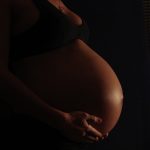The Foetal Manslaughter Debate. Should Unborn Babies be Separately Protected?

Currently in New South Wales, a person who destroys a foetus can be charged with causing grievous bodily harm against the mother, but not with a separate crime such as manslaughter or murder against the unborn baby.
However, a recent collision which caused the death of a 23-year old woman, the destruction of her unborn twins and death of her 17-year old relative has led the NSW government to consider the possibility of enacting foetal homicide laws, also known as ‘Zoe’s law’
But opponents are concerned that recognising a foetus as a separate legal entity could adversely impact upon the ability of women in our state to obtain abortions in our state.
An unimaginable tragedy
Last month, Katherine Hoang, her unborn twins and sister-in-law Anh Hoang were killed when 29-year old Richard Moananu allegedly crashed into their car.
Katherine was due to give birth in a week or so. Her husband, Bronco Hoang, survived the crash and awoke from an induced coma to hear of the unimaginable loss.
Police brought a total of 10 charges against Mr Moananu, but could not charge him with an additional two counts of manslaughter in respect of the unborn children as the law in New South Wales does not allow it.
Moves to enact laws against foetal homicide
There have been a number of attempts to pass laws against foetal homicide since 2013, when Brodie Donegan lost her unborn baby Zoe after being hit by a drug-affected driver.
Laws were passed by the NSW Legislative Assembly in that year, but lapsed before debate commenced in the Legislative Council.
They were reintroduced in a Private Member’s Bill in March 2017, but debate was adjourned in October 2017.
That bill was brought by MP Fred Nile. It sought to amend the Crimes Act 1900 (NSW) (‘the Act’) to make it a crime to harm or destroy a child in utero.
The concerns at the time were that such a law could have the unintended consequence of further criminalising abortions.
The law in NSW
The definition of grievous bodily harm in New South Wales expressly includes, “the destruction (other than in the course of a medical procedure) of the foetus of a pregnant woman, whether or not the woman suffers any other harm”.
This means a person can be charged with recklessly causing grievous bodily harm under section 35 of the Act, which carries a maximum penalty of 14 years’ imprisonment, or causing grievous bodily harm with intent under section 33, which comes with a maximum of 25 years, for actions that lead to the death of a foetus.
However, the offence is considered to be committed against the mother – not against the unborn child, who is not a person in the eyes of the law.
The ‘born alive rule’
The case of R v Iby [2005] NSWCCA 178 reiterates the earlier decision in R v F (1996) 40 NSWLR 245 which found that a homicide can only be committed against a being that is “fully born in a living state.”
However, it should be noted that Chief Justice Spigelman remarked that the ‘born alive rule’ is based upon “anachronistic… [and] indeed antiquated, factors” in so far as it “adopts an artificial and non-scientific concept of when life begins.”
Other states
Indeed, legislation enacted in other Australian jurisdictions has repealed the common law rule.
Section 313 of the Criminal Code in Queensland, for example, contains a crime of ‘killing an unborn child’ which prescribes a maximum penalty of life imprisonment for:
“Any person who, when a female is about to be delivered of a child, prevents the child from being born alive by any act or omission of such a nature that, if the child had been born alive and had then died, the person would be deemed to have unlawfully killed the child”.
Western Australia and the Northern Territory also have discrete offences for ‘killing an unborn child’, which apply“when a woman is about to be delivered of a child.”
And the Australian Capital Territory has enacted a law against “child destruction”
A backdoor way of prosecuting abortion?
Debate leading to the enactment of the Queensland laws on concerns it could lead to women being prosecuted for obtaining abortions.
However, a Queensland court found in 2010 that such concerns were ‘without foundation’, making it clear the laws did not extend that far.







